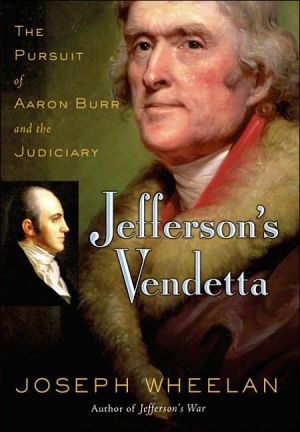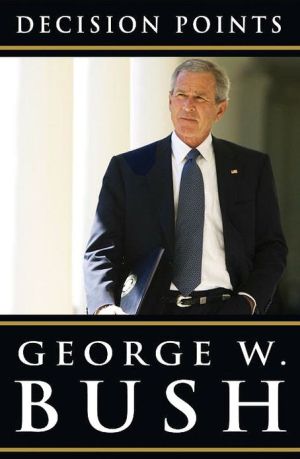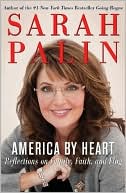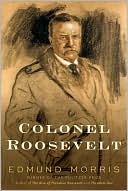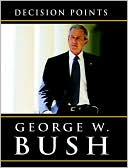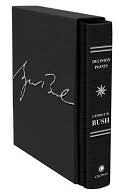Jefferson's Vendetta: The Pursuit of Aaron Burr and the Judiciary
Generations of Americans have known Thomas Jefferson as one of our unambiguously great presidents, a man of honor and optimism unencumbered by pettiness and spite; and so they have known Aaron Burr, his greatest adversary, as a traitorous would-be destroyer of that distinguished legacy. In Jefferson’s Vendetta, Joseph Wheelan examines one of the eminent political rivalries in our history, set against the backdrop of postcolonial Virginia, and discovers a truth vastly different from what is...
Search in google:
Generations of Americans have known Thomas Jefferson as one of our unambiguously great presidents, a man of honor and optimism unencumbered by pettiness and spite; and so they have known Aaron Burr, his greatest adversary, as a traitorous would-be destroyer of that distinguished legacy. In Jefferson’s Vendetta, Joseph Wheelan examines one of the eminent political rivalries in our history, set against the backdrop of postcolonial Virginia, and discovers a truth vastly different from what is taught in high schools and universities. Here is Burr, the flawed but gifted politician who made powerful enemies because his charm and skill rivaled Jefferson’s own, and who trusted the fairness of American democracy too deeply to rebut the wild criticisms aimed at him by slanderers in the U.S. government. Supreme Court chief justice John Marshall is also presented, who knew that he and his weakened federal judiciary could be redeemed by a few shrewdly considered words—or condemned by miscalculated ones—during America’s first “trial of the century.” Lastly, in vivid detail, is Jefferson, whose obsessive crusade to destroy Burr was undone by one mammoth but historically overlooked miscalculation. Eight pages of illustrations are featured in this detailed account of an historic reversal of roles. Publishers Weekly Thomas Jefferson is depicted here as a venal and vindictive opportunist who, during his second term as president, attempted to abuse the federal judicial system to persecute his one-time vice-president and chief political rival, Aaron Burr. Conversely, Wheelan, a former editor and reporter with the AP, renders Burr as a complex, flawed politico who stood in the dock charged, excessively, with treason after a misguided attempt to conquer Spain's holdings in North America and establish a rival American republic. The man Wheelan shows running interference between these two founding lions is the only true hero in the narrative: Supreme Court Chief Justice John Marshall. Partisans for either Jefferson or Burr may debate Wheelan's portrayal of their respective heroes, but they are bound to come out agreeing with the author that Marshall-whom Jefferson hated with a ferocity rivaled only by his feelings against Burr-seized and saved the day during the trial. Burr was acquitted in 1807 thanks to Marshall's strictly interpreting the Constitution's definition of treason, ensuring through his opinion that similar unfounded charges could never again be used by a president against a political enemy. Wheeler (Jefferson's War: America's First War on Terror, 1801-1805) offers an elegantly written and smartly conceived revisionist history that is sure to engage and entertain. Agent, Ed Knappman, New England Publishing Assoc. (Feb. 8) Copyright 2005 Reed Business Information.
\ Publishers WeeklyThomas Jefferson is depicted here as a venal and vindictive opportunist who, during his second term as president, attempted to abuse the federal judicial system to persecute his one-time vice-president and chief political rival, Aaron Burr. Conversely, Wheelan, a former editor and reporter with the AP, renders Burr as a complex, flawed politico who stood in the dock charged, excessively, with treason after a misguided attempt to conquer Spain's holdings in North America and establish a rival American republic. The man Wheelan shows running interference between these two founding lions is the only true hero in the narrative: Supreme Court Chief Justice John Marshall. Partisans for either Jefferson or Burr may debate Wheelan's portrayal of their respective heroes, but they are bound to come out agreeing with the author that Marshall-whom Jefferson hated with a ferocity rivaled only by his feelings against Burr-seized and saved the day during the trial. Burr was acquitted in 1807 thanks to Marshall's strictly interpreting the Constitution's definition of treason, ensuring through his opinion that similar unfounded charges could never again be used by a president against a political enemy. Wheeler (Jefferson's War: America's First War on Terror, 1801-1805) offers an elegantly written and smartly conceived revisionist history that is sure to engage and entertain. Agent, Ed Knappman, New England Publishing Assoc. (Feb. 8) Copyright 2005 Reed Business Information.\ \ \ \ \ Library JournalWheelan (Jefferson's War), a former AP reporter and editor, provides a highly engaging account of Aaron Burr's trial for treason and the events leading up to it. The author challenges Burr's reputation as one of the most corrupt and despicable figures in American history. Indeed, Wheelan contends that Thomas Jefferson was intent on destroying Burr and was a key force behind his trial, which was in effect a witch hunt. Wheelan clearly describes the trial's significance in the ascendance of an independent and powerful judiciary. Burr, Thomas Jefferson, and John Marshall, who served as the trial's judge, are the three main characters examined in this stimulating book, which focuses on Burr's life and travails. The lively narrative moves quickly, but its pace slows when the author endeavors to analyze the trial's minutiae. Recommended for larger public, academic, and law libraries.-Ted Pollack, Public Access Law Lib., New York City Copyright 2005 Reed Business Information.\ \ \ Kirkus ReviewsAaron Burr's sensational 1807 treason trial makes for good history packed with scandal, courtroom fireworks, and great men behaving badly. Historians wonder what drove the former vice president to self-destruct. Wheelan (Jefferson's War, 2003) blames the hostile Chief Executive and makes a reasonable case. Thomas Jefferson picked Burr as running mate in 1800 because he needed to carry New York. A Revolutionary War hero and brilliant lawyer, Burr was a rising, ambitious politician. His positions on slavery and women's rights were far ahead of his time. He delivered New York, but the election ended in a tie between Burr and Jefferson; in 1800, electors cast two votes but didn't specify which was for president. The election was thrown into the House of Representatives, dominated by the losing Federalists, whom Burr hoped would prefer him to Jefferson. Yet Wheelan points out that Burr refused overtures from Federalists, while Jefferson made promises that gained their votes. Jefferson then set out to destroy his rival. He denied Burr's supporters patronage, weakening the vice president's power base, and chose another running mate in 1804. Trying to recoup, Burr ran for New York governor, but Jefferson worked to ensure his defeat. Popular histories claim Burr's 1804 duel with Hamilton wrecked his career; Wheelan insists he was ruined before he killed Hamilton. Burr wrote the British government, offering to lead a revolt in the restive states beyond the Appalachians. Getting no response, he eventually organized an expedition that sailed down the Mississippi until Jefferson's arrest order caught up with him. During the trial, Jefferson peppered the prosecution with advice, some of it illegal andall of it unethical. Unfortunately for Jefferson, Chief Justice John Marshall, a bitter enemy, presided. Marshall's rulings favored Burr, who was acquitted. Entertaining and well researched, but less controversial than the publisher's claims. Wheelan is only one of the recent historians (e.g., Joyce Appleby and John Patrick Diggins) who have begun to separate Jefferson the immortal founding father from Jefferson the man, fiercely ambitious, convinced of his righteousness, and unforgiving of anyone he considered a threat. Agent: Ed Knappman/New England Publishing Associates\ \
